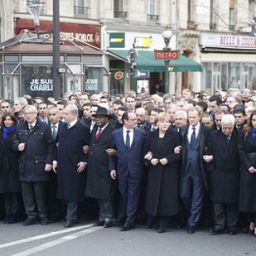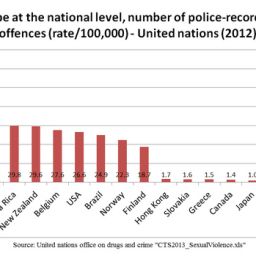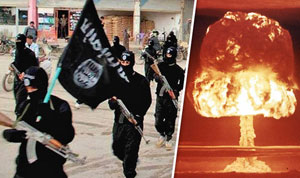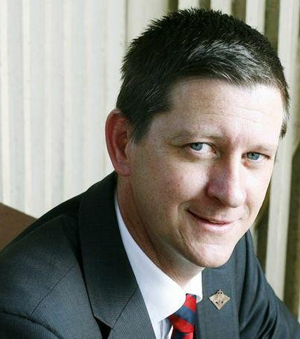The day after the Woolwich murder, David Cameron condemned it a “betrayal of Islam” as he insisted Britain would stand resolute against terror attacks.
He was speaking after chairing a meeting of Whitehall’s Cobra emergency committee of ministers, police chiefs and senior figures in the security services.
Standing outside Downing Street on May 23 ,2013, the Prime Minister said: “This was not just an attack on Britain – and on our British way of life. It was also a betrayal of Islam and of the Muslim communities who give so much to our country.
“There is nothing in Islam that justifies this truly dreadful act.”
The real betrayal lies in the Cameron’s dangerous appeasement of Islam and his wilful blindness to Islam’s true nature. See the articles “An Explanatory Memorandum” – the secret document revealing plans for the Islamic invasion of the West, and Western nations under threat from stealth jihad
Cameron’s weasel words are reminiscent of British Prime Minister Neville Chamberlain’s failure to face the truth in his dealings with Hitler in the events leading up to World War Two.
Following Hitler’s territorial demands in Europe, Chamberlain made a number of flights to Germany in order to appease Hitler.
On 29 September 1938, Chamberlain got an international agreement that Hitler should have the Sudetenland in Czechoslavakia in exchange for Germany making no further demands for land in Europe. Chamberlain said it was ‘Peace in our time’. Hitler said he had ‘No more territorial demands to make in Europe.’ On 1 October German troops occupied the Sudetenland: Hitler had got what he wanted without firing a shot.
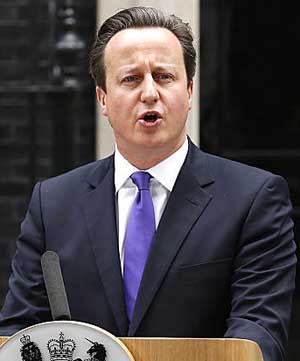 |
| Prime Minister Cameron in his “peace for our time” moment outside 10 Downing Street |
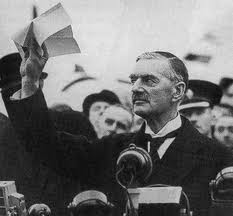 |
| Neville Chamberlain triumphantly holds aloft his ‘peace for our time” paper |
Chamberlain returned to London in triumph. Large crowds mobbed Heston airport, where he was met by the Lord Chamberlain, the Earl of Clarendon, who gave him a letter from King George VI, assuring him of the Empire’s lasting gratitude and urging him to come straight to Buckingham Palace to report.
Chamberlain took from his pocket a paper headed “Anglo–German Agreement”, which contained three paragraphs, including a statement that the two nations considered the Munich Agreement “symbolic of the desire of our two people never to go to war again”.
The streets were so packed with cheering people that it took Chamberlain an hour and a half to journey the nine miles from Heston to the Palace. After reporting to the King, Chamberlain and his wife appeared on the Palace balcony with the King and his wife, Queen Elizabeth. Chamberlain said to the crowd:
My good friends, for the second time in our history, a British Prime Minister has returned from Germany bringing peace with honour. I believe it is peace for our time.
The Commons discussed the Munich Agreement on 3 October 1938. Though Churchill spoke harshly against the pact, no Conservative voted against the government, and only between 20 and 30 abstained, including Churchill, Eden, Cooper and Harold Macmillan.
Churchill told the Commons, “England has been offered a choice between war and shame. She has chosen shame, and will get war.”
David Cameron would do well to heed Churchill’s words.
Appeasement of an implacable enemy did not work then and it will not work now.

